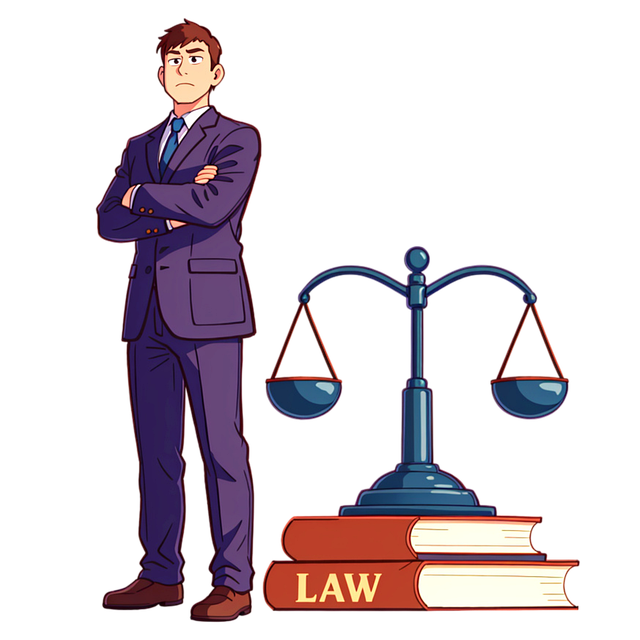Corporate acquisitions necessitate expert legal guidance due to their intricate nature and the high stakes involved. Lawyers are essential in these transactions, ensuring compliance with a myriad of laws including company statutes, M&A regulations, and antitrust rules. Their role involves meticulously drafting contracts, proactively identifying potential legal issues, and advising on due diligence to mitigate acquisition risks. In the courtroom, these professionals are adept at preparing for litigation by constructing robust legal defenses that protect clients' interests and may set precedents influencing future M&A activities. Their strategic foresight ensures the navigation of complex issues, upholding marketplace integrity and safeguarding stakeholders' rights throughout the acquisition process. Effective legal management is a multifaceted endeavor that requires not just interpretation of the law but also proactive resolution of issues to facilitate legally sound transactions and avoid potential legal pitfalls. Lawyers play a pivotal role in managing legal intricacies during acquisitions, evaluating the transaction's legal ramifications from initial assessments to final execution, and continuously adapting to changes in case law and regulations that could impact outcomes. Risk management is another critical aspect, where lawyers anticipate potential disputes and structure deals to minimize these risks by understanding the target company's legal history and regulatory environment. Collaboration with various experts is key for a comprehensive approach, ensuring successful navigation of complex acquisitions through knowledgeable and strategic legal guidance.
Navigating the intricate landscape of corporate acquisitions demands a keen understanding of legal complexities and strategic execution. This article delves into the seamless handling of such processes, illuminating the critical role legal expertise plays in ensuring transactions are not only compliant but also beneficial for all parties involved. From deciphering the legal framework governing mergers and acquisitions to outlining the strategic steps from due diligence to securing courtroom assurances, we explore key considerations lawyers must manage to navigate acquisition complications effectively. Legal professionals are at the forefront of this high-stakes domain, leveraging their knowledge of law to facilitate smooth transitions in corporate ownership.
- Navigating the Complexities of Corporate Acquisitions: The Role of Legal Expertise
- Understanding the Legal Framework Governing Mergers and Acquisitions
- Strategic Steps in the Acquisition Process: From Due Diligence to Courtroom Assurance
- Key Considerations for a Lawyer Managing Complications in Acquisition Transactions
Navigating the Complexities of Corporate Acquisitions: The Role of Legal Expertise

Corporate acquisitions are intricate endeavors that necessitate a deep understanding of legal frameworks and compliance requirements. At the heart of this process lies the indispensable role of corporate lawyers. These legal experts navigate the labyrinthine interplay between company laws, mergers and acquisitions (M&A) regulations, and antitrust statutes to ensure that all transactions are executed within the bounds of legality. Their expertise is critical in drafting and reviewing contracts, identifying potential legal hurdles, and advising on due diligence processes to mitigate risks.
In the courtroom, the stakes are high as the legal implications of corporate acquisitions can have far-reaching consequences. Lawyers meticulously prepare for potential litigation, understanding that a well-crafted legal argument can not only protect the interests of their clients but also set precedents that influence future M&A activities. Their ability to foresee and address legal challenges is pivotal in steering acquisitions towards successful completion, thereby upholding the integrity of the marketplace and safeguarding stakeholders’ rights. Legal expertise is not merely about interpreting laws; it encompasses a proactive approach to identifying, assessing, and resolving complex issues that arise during the acquisition process. This foresight and strategic legal guidance are what distinguish a smooth transaction from one fraught with legal complications.
Understanding the Legal Framework Governing Mergers and Acquisitions

Navigating the intricacies of mergers and acquisitions necessitates a profound understanding of the legal framework governing such transactions. A competent lawyer is pivotal in this process, as they possess specialized knowledge that interprets and applies various laws relevant to mergers and acquisitions. These professionals ensure due diligence by examining the legal implications of each step within the courtroom’s purview. The legal framework encompasses a myriad of statutes, regulations, and case law that dictate the procedures for corporate mergers and acquisitions. It includes antitrust laws to prevent monopolistic practices, securities laws to ensure fair dealings, and contractual laws to govern the agreements between parties involved in these transactions. Legal compliance is not just a formality but an essential component for the successful completion of such complex processes, thereby safeguarding the interests of all stakeholders. Lawyers meticulously craft strategies that align with legal stipulations, ensuring that their clients navigate the courtroom’s intricate web with precision and foresight. This due diligence is critical in avoiding potential legal pitfalls that could arise from non-compliance or improper execution of mergers and acquisitions.
Strategic Steps in the Acquisition Process: From Due Diligence to Courtroom Assurance

In the realm of corporate acquisitions, legal expertise plays a pivotal role from the initial stages to the final courtroom assurances. The process commences with meticulous due diligence conducted by a seasoned acquisition lawyer, who scrutinizes all aspects of the target company’s operations, finances, and legal standing to identify any potential issues that could impact the deal. This phase is crucial for uncovering risks, assessing valuation, and ensuring compliance with relevant laws and regulations.
Upon satisfactory completion of due diligence, the acquisition lawyer prepares and negotiates the terms of the acquisition agreement, which outlines the transaction’s structure, terms, and conditions. The lawyer’s role is to safeguard the interests of their client while ensuring that all contractual terms are clear, enforceable under the law, and reflective of the agreed-upon terms. In the event of disputes or challenges, the lawyer is prepared to represent the client in courtroom proceedings, advocating for their position with a deep understanding of the applicable laws and a strategic approach to litigation. The ultimate goal is to secure a favorable outcome that aligns with the client’s objectives, thereby transitioning from proactive due diligence to reactive courtroom assurance if necessary.
Key Considerations for a Lawyer Managing Complications in Acquisition Transactions

In the intricate dance of acquisition transactions, lawyers must navigate a labyrinth of legal complexities, ensuring due diligence and compliance with the law. A lawyer’s role is pivotal in evaluating the legal implications of the transaction, from preliminary contract reviews to finalizing agreements. They must scrutinize all aspects of the deal, from assets and liabilities to intellectual property rights, ensuring that the acquisition aligns with regulatory frameworks and does not infringe upon existing laws. Additionally, lawyers must stay abreast of any changes in legislation or case law that may affect the transaction, as the courtroom’s interpretation of the law can significantly influence the outcome of an acquisition process.
The legal team is also responsible for managing the risks associated with the acquisition, which includes anticipating potential disputes and structuring deals to mitigate these risks. This involves a comprehensive understanding of the target company’s legal history, including any past litigations or regulatory issues that could impact the transaction. Furthermore, the lawyer must coordinate with various stakeholders, including financial advisors, accountants, and other legal experts, to ensure a holistic approach to the acquisition process. The seamless handling of complex acquisition processes requires a lawyer who is not only well-versed in the relevant laws but also adept at strategic planning and risk assessment to guide the transaction to successful completion.
In conclusion, the seamless handling of complex acquisition processes is predicated on the multifaceted role of legal expertise. Lawyers play a pivotal part in orchestrating these transactions, ensuring compliance with the intricate legal framework governing mergers and acquisitions. From due diligence to courtroom assurances, their strategic oversight safeguards the interests of all parties involved. Key considerations for lawyers managing complications in acquisition transactions underscore the importance of a robust legal foundation and meticulous planning. By leveraging their knowledge of the law within the courtroom and beyond, legal professionals are instrumental in navigating the intricate web of corporate acquisitions, thereby enabling smooth and successful deal closures.
